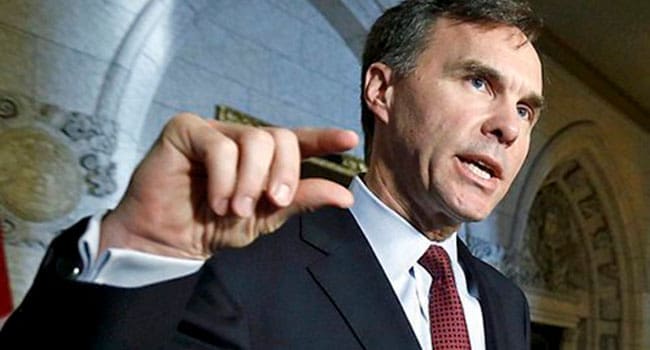 Two things have always been certain: death and taxes. We can now add a third: botching the promotion of a tax reform for political gains.
Two things have always been certain: death and taxes. We can now add a third: botching the promotion of a tax reform for political gains.
Federal Finance Minister Bill Morneau’s tax reform has been a communications disaster, on both sides of the debate.
Various claims made about Ottawa’s intentions to revamp our tax system for small corporations have been ridiculous. Some predict a recession due to the proposed changes. Others declare the end of entrepreneurship as we know it. It’s all just silly.
We should all take a deep breath and figure out how the changes will truly impact our economy. And in particular we need to focus on how Morneau’s vision for taxing small corporations will impact the agrifood sector.
The tax system is generally not about pensions, legacy and social programs. But it is for family-owned businesses and there are thousands of them in agrifood. Canada has more than 43,000 incorporated farms, compared to 23,000 in 2001. We have fewer total farms today, but more of them have become corporations to encourage the next generation to take over the farm.
The federal government’s proposed changes to capital gains rules would make it more expensive for a family member to acquire the farm than for a third party to do so. This is a critical piece of a highly complicated puzzle.
Keeping families and jobs in rural Canada is not easy. Many agricultural producers use our tax system wisely to secure the future of their businesses. In the food processing, retailing and service sectors, countless family businesses wonder how family values embedded in anything the corporation does can survive the next generation.
Morneau has also addressed income sprinkling. Corporations can now hire family members, reducing the tax rate for everyone. The rules about who can be compensated and at what level are ambiguous at best. Morneau wants to change that and for good reason. Many small corporations pay family members who don’t necessarily work for the company in order to avoid taxes. This should stop.
But defining tasks in a family-owned business can be difficult. Many of the contributions made by family members are ad hoc and can’t easily be categorized. Recipes, tricks of the trade and family traditions all matter a great deal to small food outlets (it’s difficult to imagine applying the same standard to accountants, doctors or dentists). A family business is like, well, a family. At a family-owed farm, restaurant or small food processor, job profiles are vague at best.
This political nightmare began in July when the federal government launched consultations on how best to address tax planning practices it believes are used to gain unfair advantages. Consultations end on Oct. 2.
Individuals set up corporations to pay less taxes in a variety of ways and Ottawa’s intentions are noble.
But the bombastic tone used to promote the changes has been hurtful. Ottawa’s condescending rhetoric labels small business owners as cheats, greedy tax evaders trying to dodge the system by using loopholes. This is simply insulting.
The government anticipates that the new regulations will bring in barely $250 million a year, so the Liberals aren’t using the changes to increase revenues to pay for a ballooning deficit.
This is about politics, pure and simple. Prime Minister Justin Trudeau’s agenda to serve the middle class is driving these changes.
Certainly the tax regime needs to change. Some small corporations do use current rules to save money in unjustifiable ways. Many of them have been quite vocal in recent weeks but their corporations will survive the changes.
However, the stakes are much higher in agrifood industries. This isn’t about being unwilling to pay more taxes. It’s about the viability of an entire economic sector.
Our tax regime should differentiate and give the rural economy and family corporations some level of immunity. In fact, Ottawa should find fiscal incentives to help the agrifood sector grow. Right now, it’s not clear how this can be achieved.
As the federal government tries to bring more fairness to the fiscal landscape and fix a largely urban issue, it shouldn’t penalize the agrifood sector.
Despite Morneau’s disgraceful performance as a tax reform salesman, changes will most likely happen, to the despair of many.
But even Canadians with corporations would have difficulty understanding what’s being proposed. The confusion has led to a certain hysteria and that’s the government’s fault. When it comes to taxes, painting everyone with same brush is unacceptable.
Ottawa will get its way in the end but it should at the very least accommodate the unique intricacies of our agrifood sector.
Dr. Sylvain Charlebois is senior director of the agri-food analytics lab and a professor in food distribution and policy at Dalhousie University.
Sylvain is a Troy Media Thought Leader. Why aren’t you?
The views, opinions and positions expressed by columnists and contributors are the author’s alone. They do not inherently or expressly reflect the views, opinions and/or positions of our publication.

